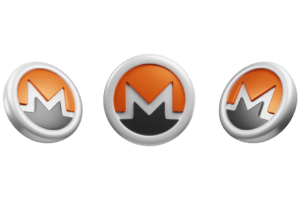In the ever-evolving world of cryptocurrencies, the rise of Web3, Non-Fungible Tokens (NFTs), and Decentralized Finance (DeFi) has brought about a paradigm shift in how we interact with digital assets. As these technologies gain traction, the need for secure and user-friendly crypto wallets becomes paramount.
In this write-up, we look into three of the best crypto wallets this year.
Trust Wallet
Trust Wallet, now owned by Binance, has established itself as a reliable and versatile crypto wallet catering to the needs of both beginners and seasoned users. One of its standout features is its multi-coin support, allowing users to store different types of cryptocurrencies. This inclusivity is particularly relevant in the Web3 era, where interoperability is a key.
For NFT enthusiasts, Trust Wallet’s integration with major NFT marketplaces makes it a seamless choice. Users can effortlessly buy, sell, and manage their NFT collections directly from the wallet interface. Still, Trust Wallet’s integration with decentralized exchanges (DEXs) facilitates smooth DeFi transactions, enabling users to swap tokens and participate in liquidity pools without leaving the wallet environment.
Trust Wallet’s commitment to security is evident through its non-custodial nature, ensuring users retain total control over their private keys. The wallet also boasts an intuitive user interface, making it accessible to newbies.
Metamask
Metamask remains a pioneer in Ethereum wallets, with widespread acclaim for its role in simplifying the user experience for interacting with decentralized applications (DApps) and managing Ether. However, its utility has expanded beyond Ethereum, supporting other blockchain networks.
What makes Metamask a strong contender in the Web3 landscape is its browser extension. It seamlessly integrates with popular web browsers like Chrome and Firefox, allowing users to access decentralized applications with just a few clicks. For NFT aficionados, Metamask’s compatibility with major NFT marketplaces ensures a hassle-free experience in trading and managing digital art and collectables.
Metamask also plays a vital role in the DeFi space by connecting users to countless decentralized financial services. Its integration with decentralized exchanges and lending platforms positions it as a go-to wallet for users looking to engage in the burgeoning world of DeFi.
Rainbow
Rainbow is a mobile-first crypto wallet that has gained attention for its sleek design and user-friendly interface. Focused on providing an aesthetically pleasing experience, Rainbow stands out among crypto wallets for its minimalist approach.
While Rainbow currently supports only Ethereum and its associated tokens, its emphasis on user experience makes it an attractive choice for those entering the Web3 space. NFT enthusiasts can seamlessly interact with major NFT platforms, and DeFi users can leverage Rainbow’s integration with decentralized applications to engage in yield farming and decentralized trading.
One notable feature of Rainbow is its social layer, allowing users to discover and follow friends, influencers, and projects within the crypto space. This social integration adds a unique dimension to the wallet, fostering community engagement.
To find the best crypto wallet in 2024, consider the following factors:
- Security: Look for wallets with robust security features, such as two-factor authentication and biometric authentication. Ensure that the wallet has a strong reputation for protecting users’ funds.
- Compatibility: Ensure that the wallet is compatible with the platforms, blockchains, and applications you intend to use. It should support the latest standards for DeFi and NFTs.
- User Interface (UI) and User Experience (UX): A user-friendly interface is essential, especially for those new to the crypto space. Choose a wallet with an intuitive design that makes it easy to manage your assets.
- Community and Development Support: A wallet with an active and supportive community, as well as continuous development and updates, is likely to stay relevant and address emerging challenges.
- Mobile and Desktop Support: Consider whether the wallet is available on both mobile and desktop platforms for convenience and flexibility.
- Ownership and Control: Choose wallets that give you full control and ownership of your private keys. This is crucial for maintaining the security and access to your funds.
- Reviews and Reputation: Check for reviews and the overall reputation of the wallet within the cryptocurrency community. Feedback from other users can provide insights into the wallet’s strengths and weaknesses.
In Summary
The best crypto wallet for Web3, NFTs, and DeFi ultimately depends on individual preferences and needs. Trust Wallet’s versatility, Metamask’s browser integration, and Rainbow’s sleek design each bring unique strengths to the table. As the crypto landscape continues to evolve, these wallets will likely adapt and innovate to meet the changing demands of users in the Web3 era.
Other wallets to consider:
- Ledger Nano S Plus: A hardware wallet that supports over 5,500 assets, including NFTs.
- Exodus: A software wallet that supports over 250 assets and has a built-in exchange.
- Crypto.com DeFi Wallet: A software wallet that supports over 700 assets and integrates with the Crypto.com ecosystem.
- Trezor: A hardware wallet that supports over 8,000 assets and has a touchscreen display.
- Coinomi: A software wallet that supports over 10,000 assets and has a built-in exchange.
Image Source: Adobe Stock
Disclaimer: This article is provided for informational purposes only. It is not offered or intended to be used as legal, tax, investment, financial, or other advice.









